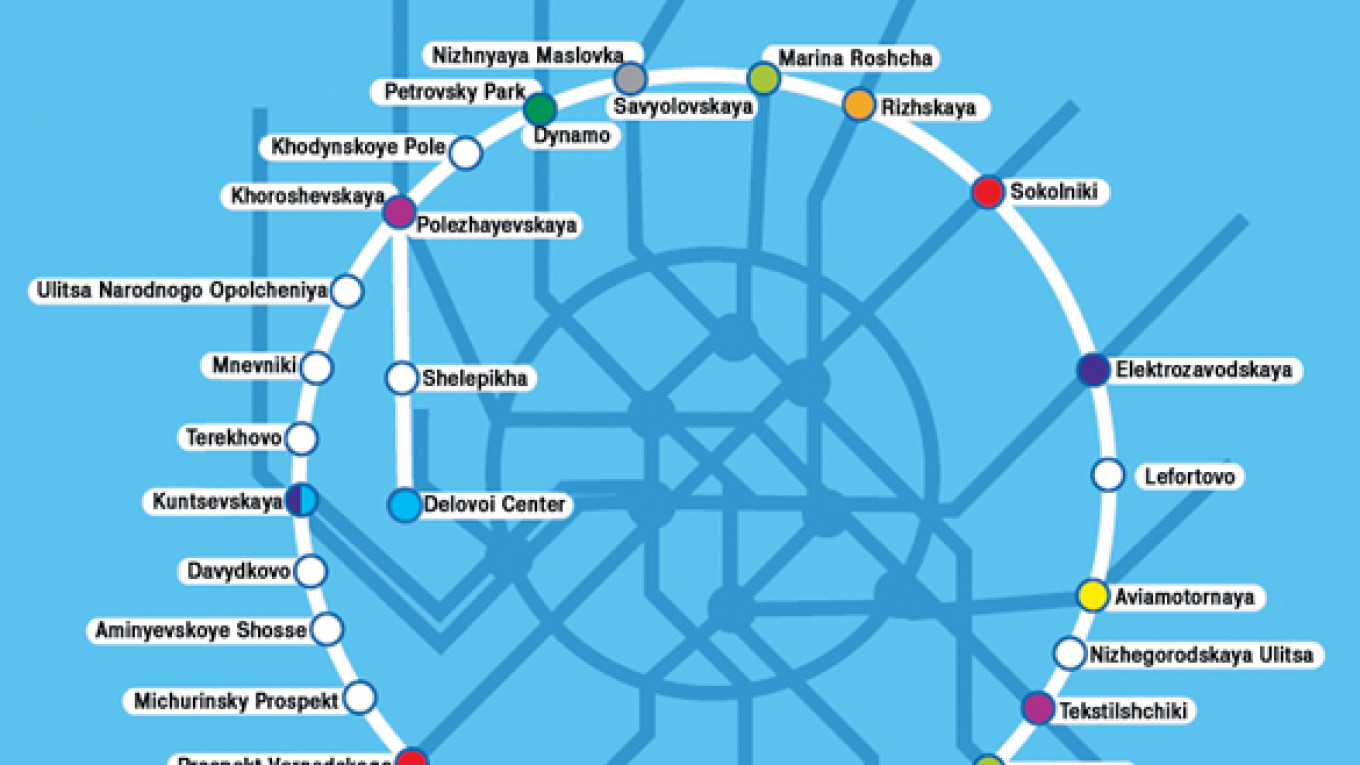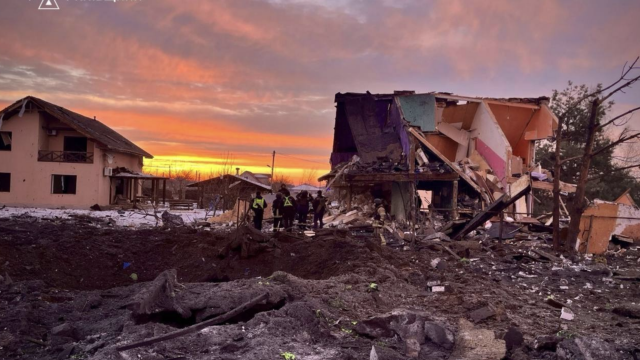City Hall's plans to build a second ring line for the Moscow metro, first announced two years ago, are not only taking shape but progressing faster than initially expected, an official said Wednesday.
Having revised the project's technical parameters, the final plan is to complete the second ring line by 2018, said city construction department chief Andrei Bochkaryov.
Previous plans were to finish building the line by 2020.
The new metro ring will be about 54 kilometers long, which is half the length of the Moscow Ring Road that encircles the city.
"The first segment to come on line will be the northwestern part — Khoroshevskaya station to Nizhnyaya Maslovka. Then we will move from Nizhegorodskaya Ulitsa to Elektrozavodskaya station," Bochkaryov said.
The next stage will be Vernadskogo Prospekt to Aminyevskoye Shosse.
"Afterwards we will link all these sections into one ring," Bochkaryov said, adding that parts of the ring will gradually become available for service once completed.
The accelerated plan for this year is to dig on total 45 kilometers of tunnels, which beats Soviet-era records by three times.
"Never has the metro been built at the current pace — not in the Soviet times [in Russia], nor anywhere else in the world," Bochkaryov said.
Building the metro is a costly business. The city government is going to channel more than 130 billion rubles ($3.7 billion) on metro projects in 2014 alone. Digging metro lines is the most expensive item in the city construction budget, which for this year stands at 330 billion rubles.
Over the next 10 years the city authorities plan to construct 158 kilometers of metro lines on total. By 2020 the Moscow metro will have more than 451 kilometers of tracks and more than 250 stations.
Besides currently keeping up world's fastest pace of construction, the Moscow metro holds the world record for frequency. During rush hours the trains come and go every 90 seconds.
The Seoul subway holds the record for the number of stations and the number of people it transports per year. It has more than 600 stations and transports about 3.5 billion passengers annually.
The New York City subway is a close rival by the number of stations, with 468.
The Seoul subway is also the longest, stretching as far as 720 kilometers. But if China's ambitions come to fruition, by 2020 it will be beaten by the Beijing subway which is expected to have more than 1,000 kilometers of lines by that time.
London's Tube is the world's oldest metro. It saw the first underground train in 1863.
The Paris subway is considered to be the most effective. It has a very high line density and number of transfers available. Running 215 kilometers long, it has more than 300 stations, 62 of which are transfer points. It is also famous for its cutting-edge technology. For example, the Paris subway was a pioneer to purchase trains that ran on low-noise rubber wheels.
Contact the author at [email protected]
A Message from The Moscow Times:
Dear readers,
We are facing unprecedented challenges. Russia's Prosecutor General's Office has designated The Moscow Times as an "undesirable" organization, criminalizing our work and putting our staff at risk of prosecution. This follows our earlier unjust labeling as a "foreign agent."
These actions are direct attempts to silence independent journalism in Russia. The authorities claim our work "discredits the decisions of the Russian leadership." We see things differently: we strive to provide accurate, unbiased reporting on Russia.
We, the journalists of The Moscow Times, refuse to be silenced. But to continue our work, we need your help.
Your support, no matter how small, makes a world of difference. If you can, please support us monthly starting from just $2. It's quick to set up, and every contribution makes a significant impact.
By supporting The Moscow Times, you're defending open, independent journalism in the face of repression. Thank you for standing with us.
Remind me later.






